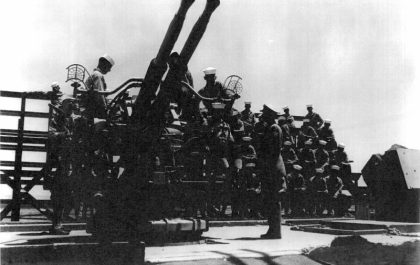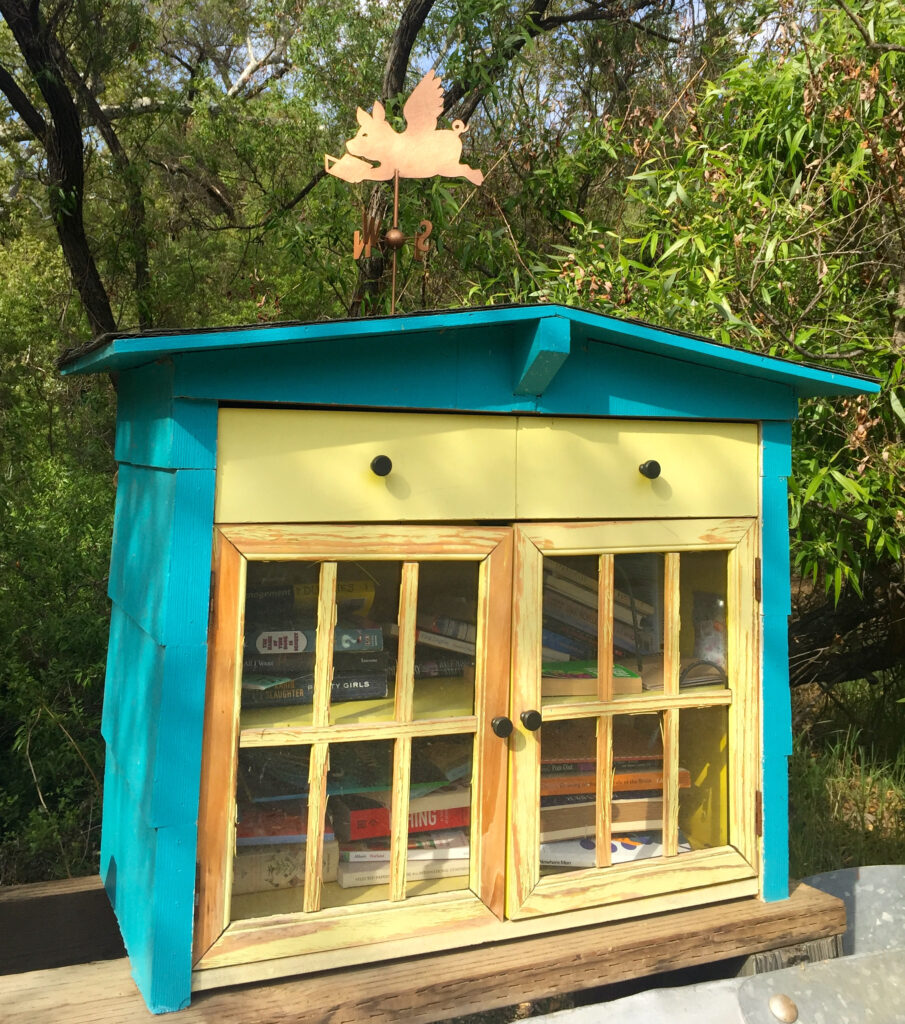
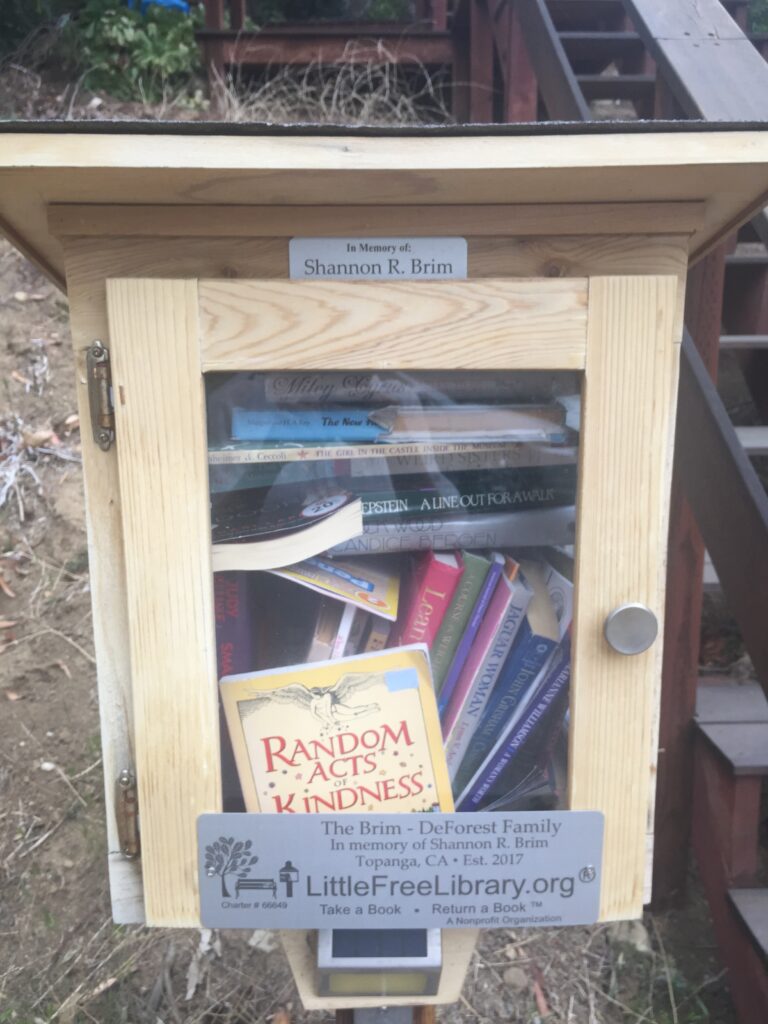
What small wooden box builds community,
inspires readers and expands access to books?
Book exchanges are popping up in neighborhoods all over the world, charming passersby with a sense of chivalry and a strange wistfulness usually evoked by used bookstores. If you haven’t yet, you are bound to encounter a little free library.
A little free library may look like an elaborate birdhouse, or it could be as simple as a plastic bin in a red wagon. Fancy or basic, they operate on the same principle: Anyone may take a book. Anyone may share a book. Some people return the book borrowed, while others drop off a different book. The reader may return the book to the same library she borrowed from, or to another in her area, whenever she can. Ideally, the little free library is self-sustaining. Volunteer “stewards” establish and periodically refresh the bookcases.
Little Free Library is a 501 nonprofit organization co-founded in 2012 by Rick Brooks and the late Todd Bol, who envisioned a world where neighbors knew each other by name and everyone had access to books. The name is trademarked, and to use it a steward must register his book exchange with the organization. Only registered libraries are tracked on the map of over 90,000 Little Free Libraries in over 88 countries. The grass-roots movement for improved access to books, however, also comprises unregistered libraries and may be—who knows?—twice as large!
The Little Free Library staff helps stewards choose locations, and offers building kits, blueprints, and advice. The non-profit offers a newsletter, a book club, a program for underserved communities, and maintains the world map of registered Little Free Libraries.
Topanga Canyon is home to two official Little Free Libraries. One is located on Topanga Skyline Drive to the west of Valley Drive, and one block from Burson Road. This library is dedicated to the memory of Shannon R. Brim, “an amazing educator, teacher, and mother.” Little libraries are often erected in tribute to a loved one’s memory. This one also has a night light, and a dog leash hook.
Topanga Canyon’s other Little Free Library is located mid-Canyon on Callon Drive, on the property of David Shapiro, built by Tom “Teeg” Merchant, and stewarded by Teeg, as well as by anonymous neighborhood custodians. Several years back, Teeg, a designer/builder/artist/craftsman, read in a woodworking magazine that a band was organizing an event at a Woodland Hills elementary school to build little free libraries, and he wanted to help. He drove onto the playground in his yellow van, outfitted with sawhorses for myriad workstations, plywood, paint, lengthy electric cables and a compressor, bringing expertise and power tools to the undertaking. Many eager librarians had creative visions but zero construction skills, so Teeg built several book cabinets that day, including one for his own neighborhood. (Nowadays, little library cabinets may be purchased on Etsy.)
Built with redwood, the Callon Drive library has two deep shelves behind its glass door and pull. The roof is made of Victorian tin tile and slopes pagoda-style along a curly-cue fascia. At the apex is a hand-carved cartouche depicting Saraswati, the Hindu goddess of wisdom, which complements the Library’s situation at the corner of an ashram, near a life-sized statue of a deva. With Topanga Canyon Inn Bed and Breakfast around the corner, a pre-school down the road, and hikers and bikers passing en route to Topanga State Park, even though the road is rural and has more dogs, peacocks, and horses than cars, many people visit the library.
Little Free Libraries in borrowing distance of Topanga Canyon, according to the Map and Search Tool at LittleFreeLibraries.org, include two in the Palisades, one on PCH south of Maestros, four in Woodland Hills, one in Calabasas, and one at Point Dume. A couple of Topangans in the Post Office Tract are currently surveying their neighbors about reading habits and preferences in anticipation of setting up a Little Free Library. The bright and charming little free library at the base of Hillside Drive is one of probably several in town set up independently. The Hillside library is topped with a gold weathervane where Topanga’s unofficial mascot, the Flying Pig, is reading a book and spinning in the breeze. O civic pride!
Apparently, there is a closeted librarian in some people responding to two dynamics in the community: the need for books, and the need to share. These people give a magnanimous gift to the community because the quaint book boxes house a powerful spirit: the honor system. No one is there to mind the store! It’s a balm to trust and be trusted.
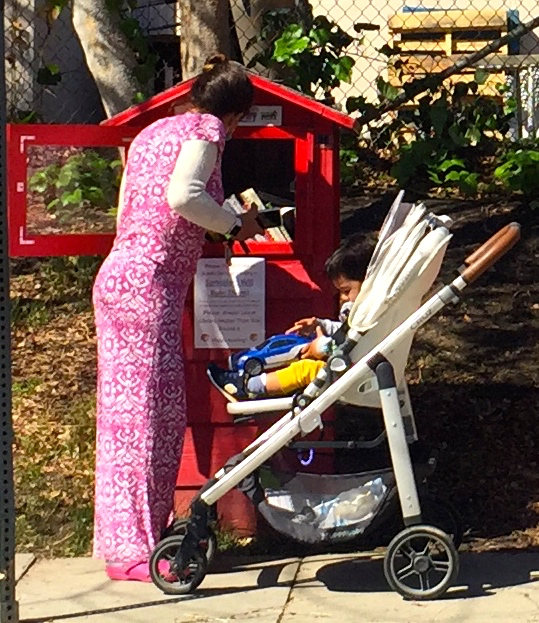
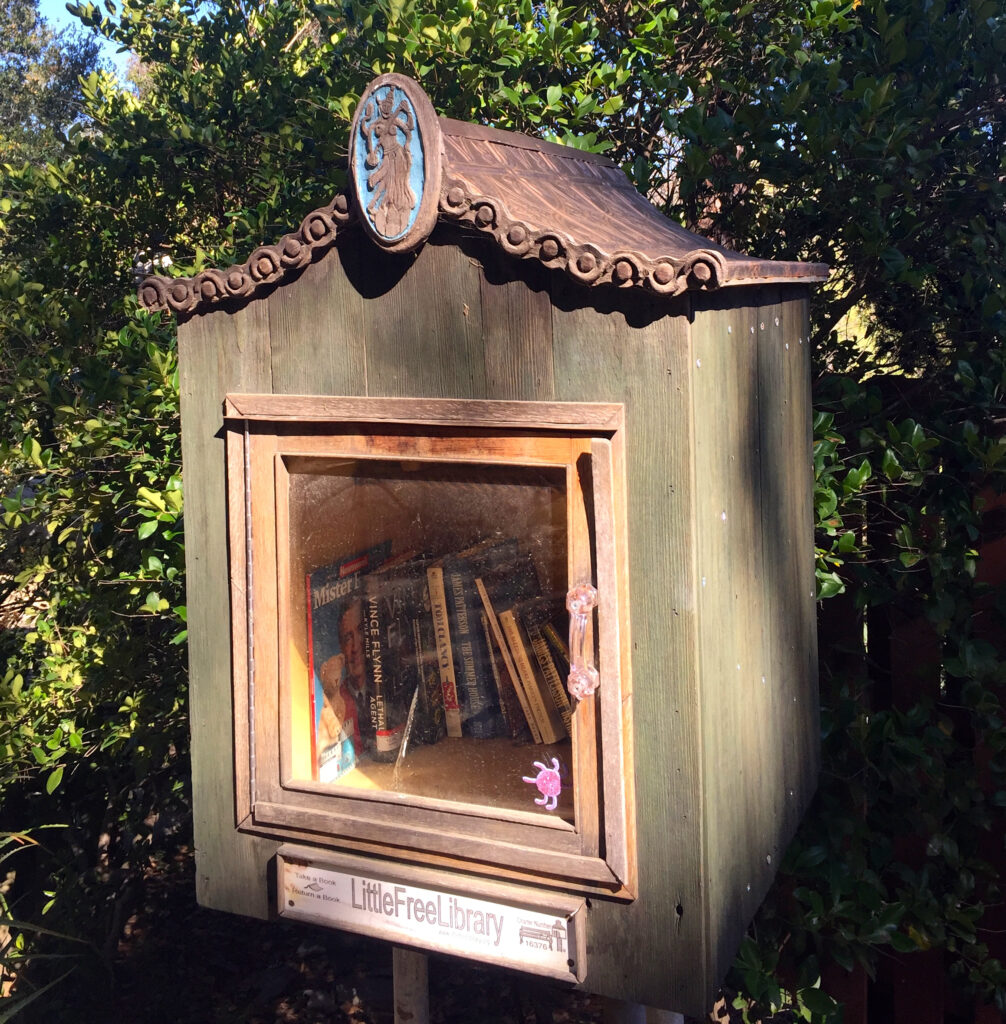
In Topanga Canyon, sharing books adds fodder for discussions, and forges connections among neighbors – especially during the pandemic, further enhancing the quality of life. In a needy area, in addition to the above benefits, the effect of having 24-hour free access to a book could have a radical impact on a growing literary crisis. According to the National Center for Educational Statistics, twenty percent of adults in the U.S. are functionally illiterate. Thirty million adults cannot read or write above a third-grade level. Books in the hands of children make it more likely a child will learn and love to read; but two out of three children living in poverty have no books to call their own.
Inspired by the Little Free Library effort, Jessica McClard of Arkansas applied the neighborhood exchange model to food insecurity; founding the Little Free Pantry movement in 2016 with a pilot pantry containing non-perishable food and personal care items, accessible to everyone, at all times, no questions asked. The motto, “Give what you can. Take what you need,” has proven viable as pantries fill and empty every day. Now there are hundreds of little free pantries across the U.S. (though perhaps not in Topanga Canyon yet), sometimes sharing shelf space with the books. Little Free Pantry is not trademarked, not a nonprofit or other organization, and not designed to supplant food banks. The stewards are neighbors in the habit of adding a few extra items to the shopping cart, meeting a really local need where it exists.
In an attempt to distance shame or awkwardness from hunger, stewards intend the pantries to be used by everybody. A neighbor may borrow a cup of sugar or an onion. School kids can hit up the pantry for a snack on the way home from the bus stop. College students (30% of whom face food insecurity) can stop by for a bump. The elderly have another resource at hand. Mainly though, those who struggle, out of work, and living in the car can piece together daily nutrition. The best donations are non-perishable food that may be eaten immediately, without needing tools or cooking.
Goodness is risky. Detractors use language like “bum-magnets” and argue What if somebody gets a splinter? Hopefully the good of little free libraries will be seen to outweigh the risks, and the Bill Emerson Good Samaritan Food Donation Act will protect the valiant pantry hosts. Meanwhile, let’s enjoy the utopian bubble of little neighborhood exchanges, and even ask What else could happen in those small, wooden boxes?
